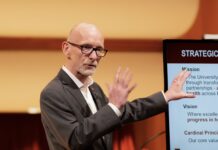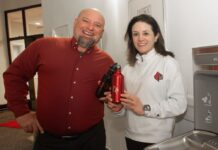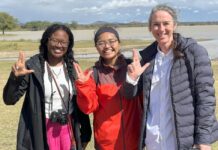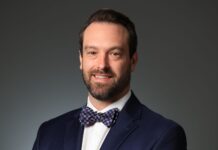
Locomotor training is helping Emmalie, who was unable to walk after suffering a spinal cord injury, take steps, sit up on her own and improve her range of motion. Andrea Behrman, PhD, professor in the UofL Department of Neurosurgery, researches locomotor training in children at UofL.
“It turns out the spinal cord is really really smart. And it may be as smart as the brain,” Behrman said. “The brain gets information, listens to it, reads it, responds, integrates it and generates an outcome. When (the researchers) found that out, they said ‘I wonder if anybody can use this information in rehabilitating people with spinal cord injuries?’ And the answer is yes.”
Watch more about UofL’s locomotor training, and Emmalie’s story:
































